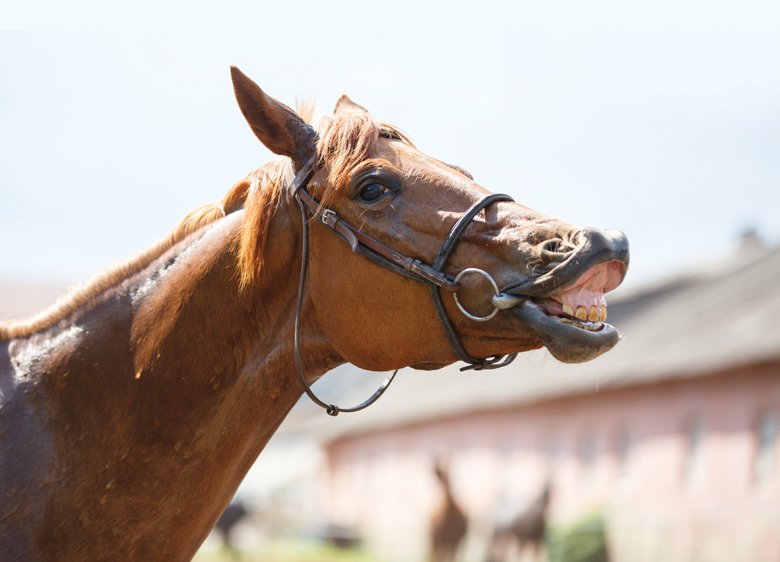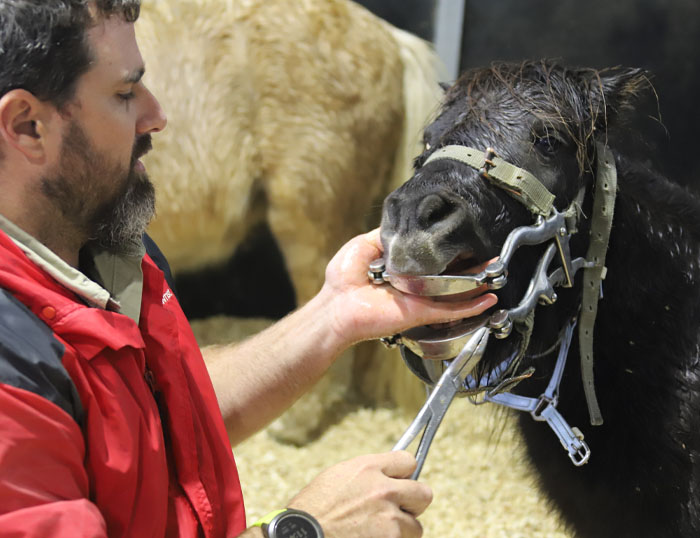As any seasoned equestrian will attest, the health and care of a horse’s teeth are pivotal not only to its well-being but also to its longevity. A reliable horse dental aging guide is indispensable for every horse owner and enthusiast. Understanding how to determine a horse’s age by its teeth can be as essential as knowing its breed or temperament. This article will unravel the nuances of equine dental aging and why it is crucial for your horse’s health.

The Importance of Understanding Horse Dental Aging
Understanding the age of a horse through its dental structure is crucial for various reasons. Not only does it help in determining the nutritional needs, but it also guides you in making informed decisions about veterinary care and management practices. A reliable horse dental aging guide can provide insights into a horse’s life stage, which is vital for tailoring its care.
How Can You Tell a Horse’s Age by Its Teeth?
The age of a horse can be estimated by examining the wear and position of its teeth. Horses have two sets of teeth during their lifetime – deciduous (baby) teeth and permanent teeth. The transition from deciduous to permanent teeth provides the first clues in determining age.
Stages of Dental Development in Horses
Let’s delve into the stages of dental development, which serve as the foundation of any horse dental aging guide:
- Foals and Yearlings: From birth to about a year old, foals will develop their first set of teeth, known as deciduous or milk teeth. These teeth are temporary and will eventually be replaced by permanent teeth.
- Two to Five Years: During this period, horses will start to lose their baby teeth and replace them with permanent ones. This transition is complete by the age of five.
- Mature Horses: From six years onwards, the focus shifts to the wear and tear of the teeth, which continues to provide clues about age.
Key Dental Features in Aging Horses
As horses age, several key dental features can help in determining their age:
- Galvayne’s Groove: Appearing at around 10 years of age, this groove runs down the outside surface of the upper corner incisor.
- Dental Cups: The presence or absence of cups on the grinding surface of the teeth is another indicator of age.
- Occlusal Angle: The angle at which the upper and lower teeth meet can also change with age, offering further clues.
Why is Regular Dental Check-up Vital?
Regular dental check-ups are essential for maintaining the health of your horse. Just like humans, horses require dental care to prevent issues like tooth decay, infections, and other dental diseases. Enlisting the help of a veterinarian who understands the intricacies of equine dental care can make a significant difference in the health of your horse.
Common Dental Problems in Horses
Equine dental health can be fraught with potential issues. Some of the common problems include:
- Tooth Decay: Often caused by poor diet or lack of dental care.
- Dental Abscesses: Infections that can cause pain and difficulty in eating.
- Misalignment: Can lead to uneven wear and tear of the teeth.
For more information on common dental issues, visit our page on Equine Teeth Grinding.
How to Care for Your Horse’s Teeth
Caring for your horse’s teeth involves regular check-ups, a balanced diet, and sometimes, dental procedures like floating. Floating involves filing down the sharp edges of a horses teeth to prevent discomfort and ensure better chewing.
For more details on dental procedures, check out Floating a Horse’s Teeth.
Equine Dental Health: A Key to Longevity
Proper dental care can extend a horse’s life and improve its quality of life. By ensuring your horse has a healthy mouth, you can prevent many of the common ailments associated with poor dental hygiene.
To learn more about maintaining dental health post-surgery, visit Dental Care Post-Surgery.
FAQs on Horse Dental Aging
- How often should a horse’s teeth be checked? Ideally, a horse’s teeth should be checked by a veterinarian at least once a year. Younger horses and those with known dental issues may require more frequent check-ups.
- What is floating, and is it necessary? Floating is the process of filing down the sharp edges of a horse’s teeth. It is necessary to prevent discomfort and ensure proper chewing.
- Can a horse’s diet affect its dental health? Yes, a balanced diet is crucial for maintaining dental health. Sugar-rich diets can lead to tooth decay and other dental issues.

Conclusion: The Role of Dental Care in Horse Aging
In conclusion, a thorough understanding of a horse dental aging guide can significantly impact your horse’s health and longevity. By keeping a close eye on your horse’s dental health, you can ensure it enjoys a longer, healthier life. For further reading, consider exploring the basics of equine dentistry at Straight from the Horses Mouth: Equine Dentistry Basics.
This article contains affiliate links. We may earn a commission at no extra cost to you.
